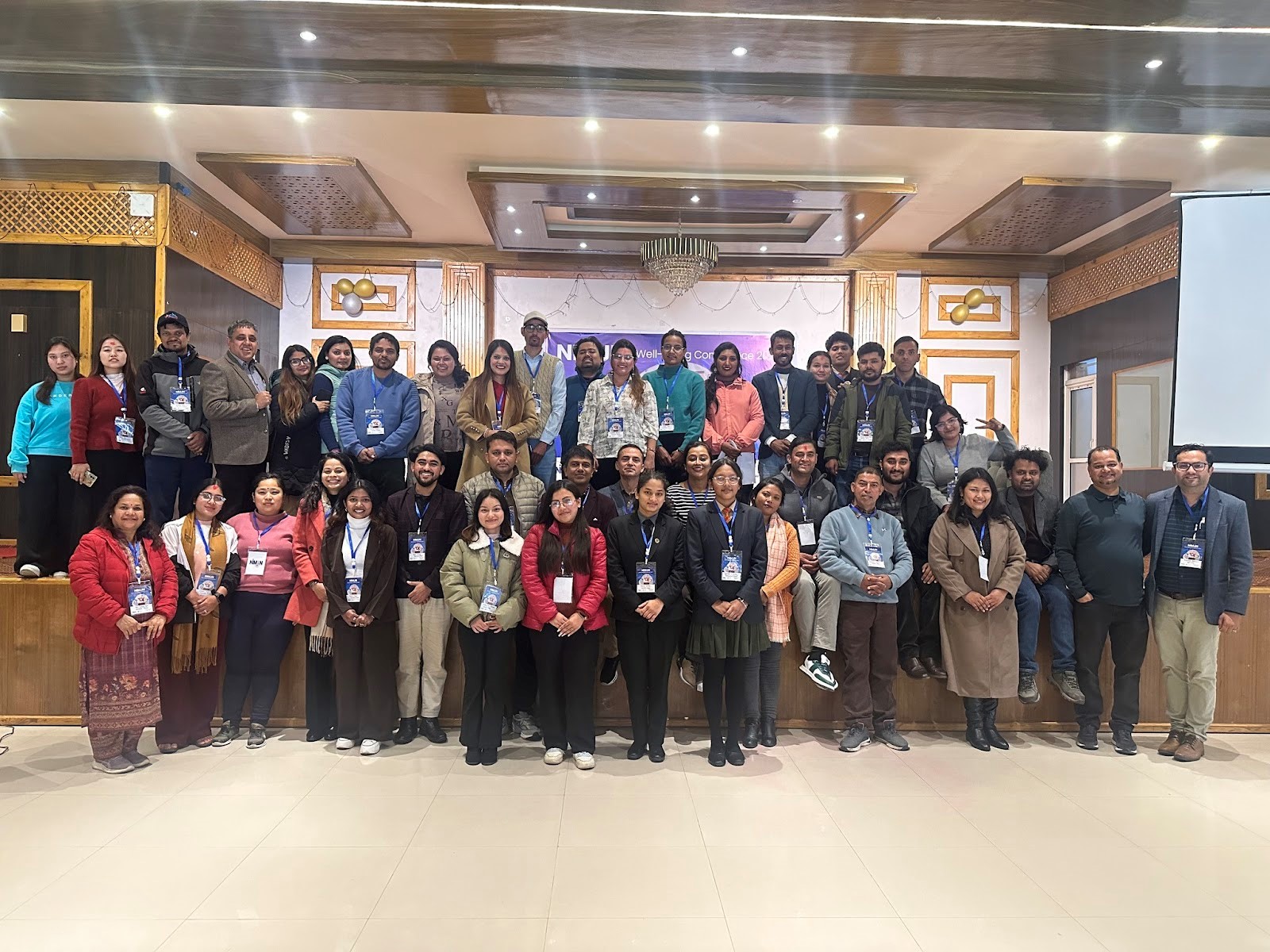Nepal Investigative Multimedia Journalism Network (NIMJN) organized a two-and-a-half-day training on 'Reporting on Human Trafficking and Human Rights using Multimedia Tools' from September 13 to September 15, 2024, in Dhangadhi. Twenty journalists from different districts of Sudurpaschim Province participated in the training, which was supported by the Australian Aid.
This is the final of the seven trainings NIMJN organized as part of the series of training on human trafficking and human rights. Earlier this year, NIMJN organized six trainings in six provinces.
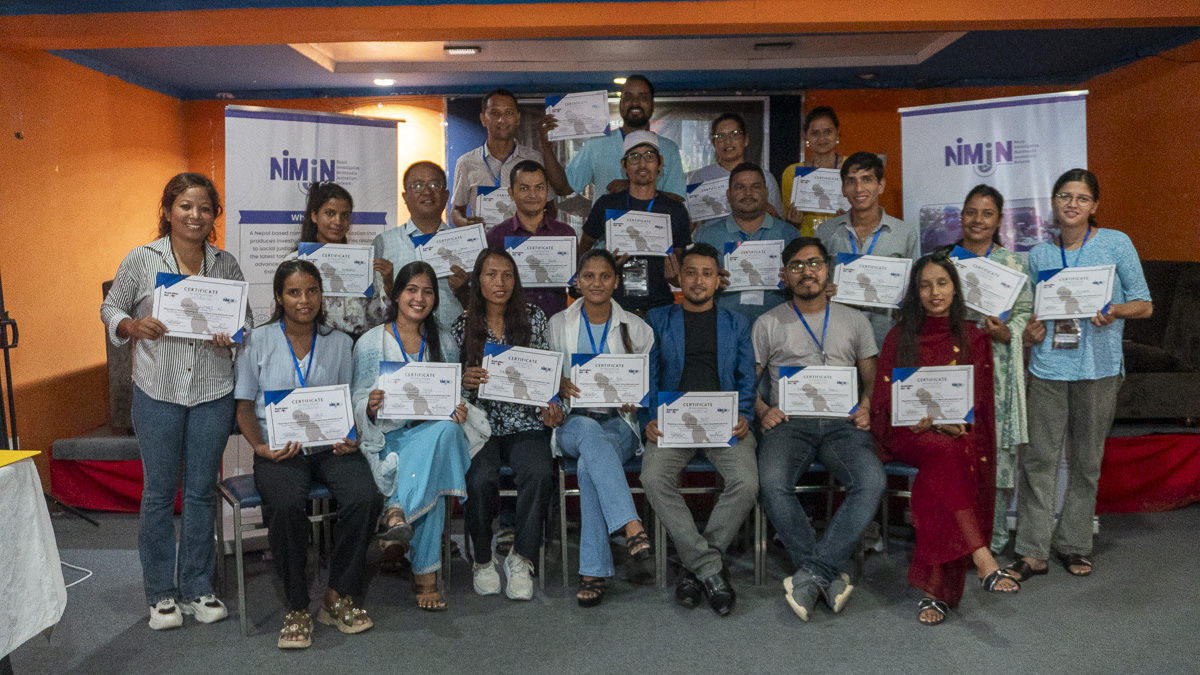
The two-and-a-half-day residential training consisted of sessions ranging from introduction to investigative reporting to reporting on human trafficking, anti-trafficking laws to stories of survivors, use of multimedia tools to data storytelling, ethics and safety to solutions journalism.
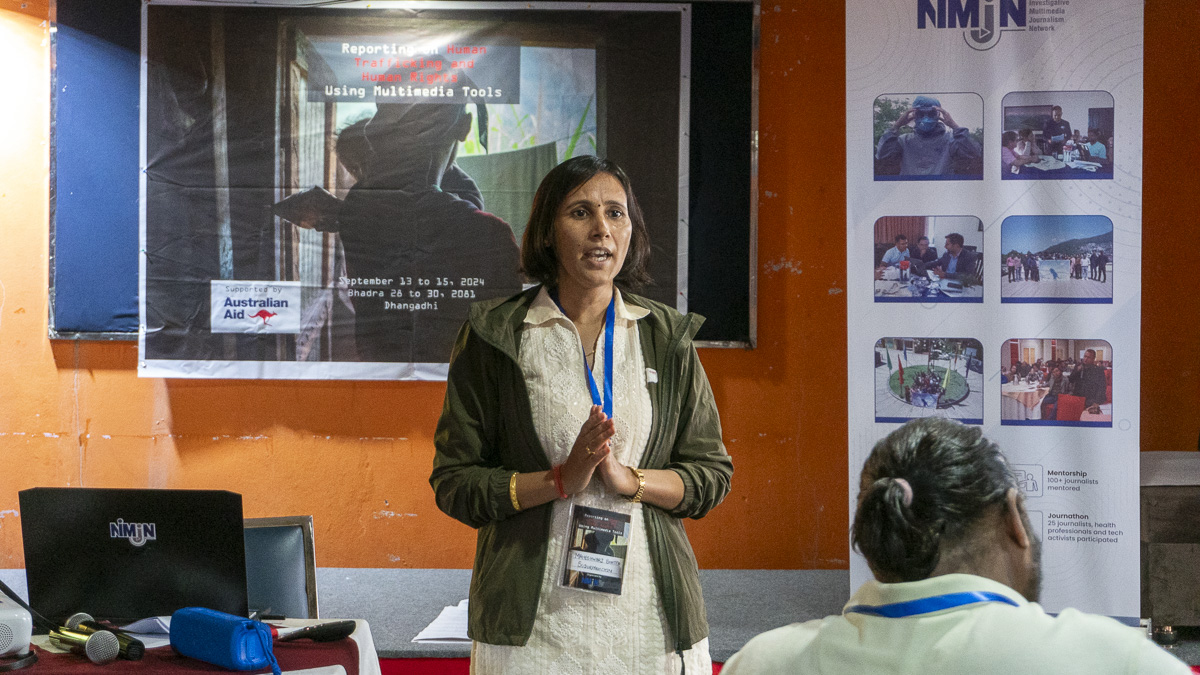
Maheswari Bhatta from Maiti Nepal and Advocate Sumitra Karki spoke on the status of human trafficking and human rights in Sudurpaschim Province and the districts bordering India.
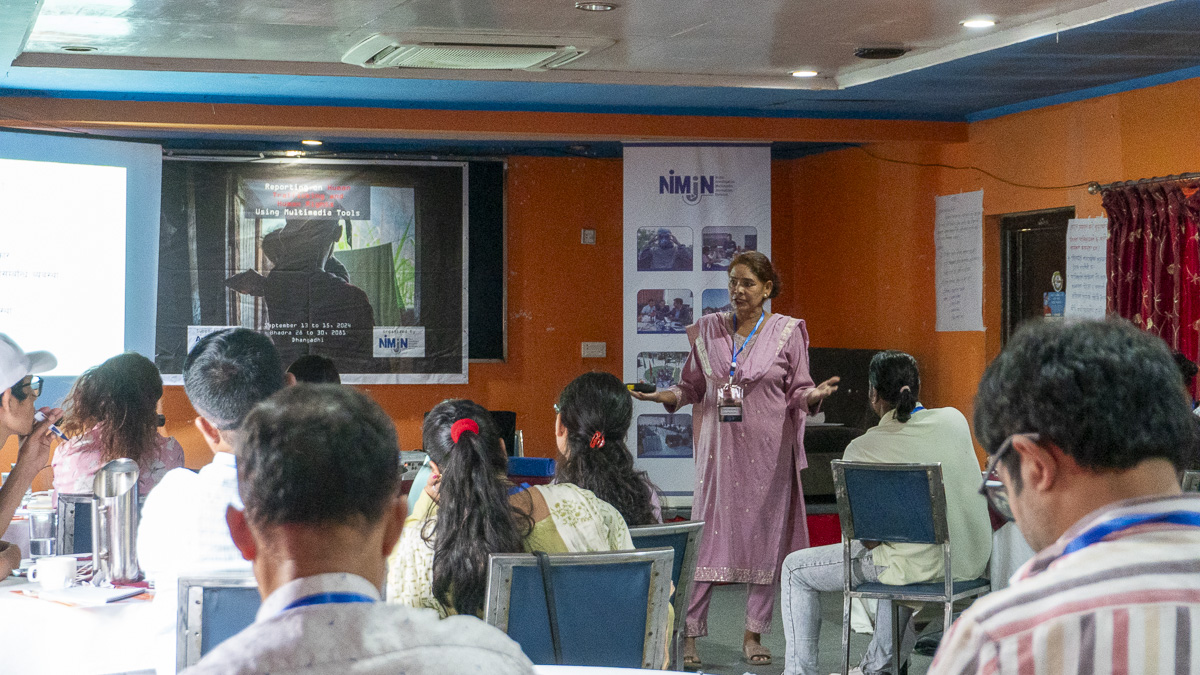
Their sessions highlighted the evolving trends of human trafficking in Nepal and how to report sensitively and ethically.
Dinesh Regmi, a senior NIMJN fellow and a journalist reporting on migration and human trafficking issues, took sessions on reporting on human trafficking, safety, and ethics. Shuphal Kafle, a seasoned journalist and copy editor at NIMJN, took journalists to formulate a hypothesis and shared tips on writing and managing investigations.
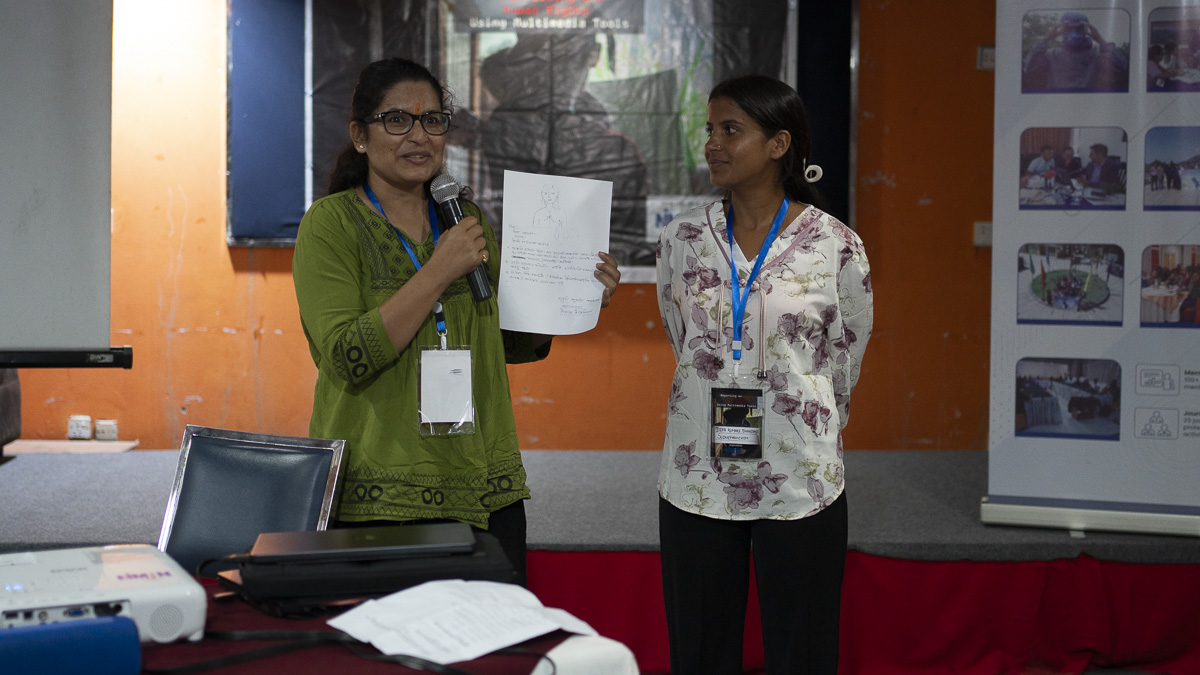
Rajneesh Bhandari, NIMJN's chief editor, global multimedia journalist, and trainer, trained journalists in producing investigative multimedia stories and solutions journalism.
The training included many interactive group work sessions, during which the participants formulated hypotheses and pitched their stories. They also produced a one-minute video during their mobile journalism and multimedia storytelling sessions.
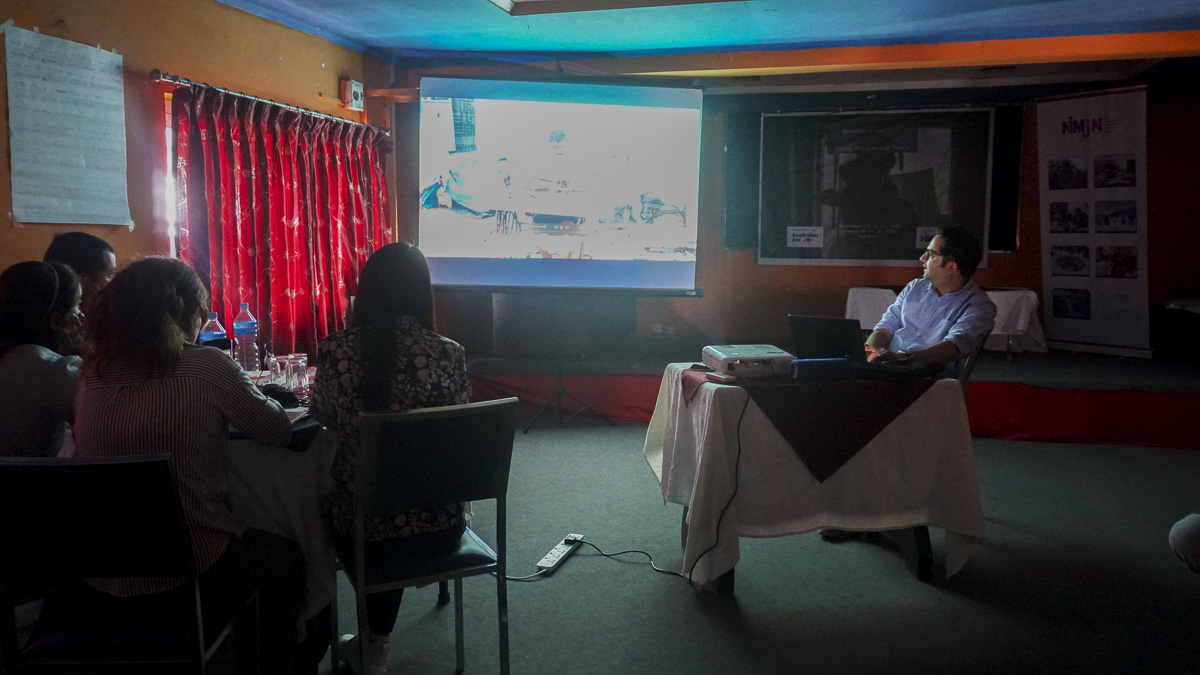
The training participants came from diverse backgrounds, media outlets, and experiences. Eleven female and nine male participants attended the training. They can now apply for the NIMJN Human Trafficking Reporting Fellowship. Two fellow participants from Sudurpaschim Province will be selected, and they will work with the NIMJN team to produce investigative multimedia pieces.
Here are some excerpts from participants regarding their experiences of the training:
"Previously, I received training from NIMJN, but this capacity-building training on reporting human trafficking and human rights issues has helped me understand the importance of uncovering investigative stories with evidence using multimedia tools. I know this two-and-a-half-day training is not enough for us, and we need such training to enhance our reporting skills in the future. I request organizations like NIMJN to focus on this kind of training for journalists so that we can raise underlying issues with in-depth reporting." - Indra Kumari KC
"Being selected in this capacity-building training has added an opportunity to explore the horizons of a reporter to uncover investigations with evidence using multimedia tools. This training was intensive and advanced for me, which has added to my curiosity to learn to contribute to this field of investigative reporting. I know this training is just a means of exploration, but I am committed to using what I have learned during this training consistently to enhance my reporting skills." - Krishna Bahadur Bista
"This training has highlighted the importance of ethics and safety of journalists along with sharing the necessity of discussions on the journalist's well-being. I have attended many trainings throughout my journalism career, but the issues of journalists that are often overlooked are focused on this training with great importance. This training has only opened a gateway for journalists who are working from districts to understand the importance of investigative reporting beyond our working areas. Even though we need more training on these kinds of capacity-building training that hone our multimedia story-telling skills while reporting." - Sujit Sinal

